Gymnastics: New rules aimed to protect young gymnasts announced
- Published
- comments
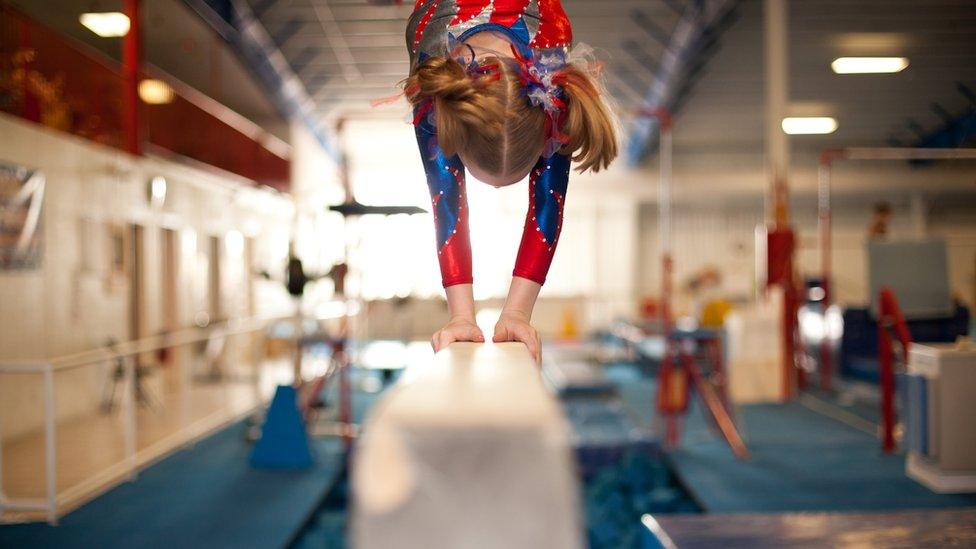
New rules for gymnastics coaches and clubs have been announced by British Gymnastics.
A report, called the Whyte Review, was commissioned in 2020 by UK Sport and Sport England, after numerous gymnasts spoke out about bullying, abuse and discrimination in the sport.
The report, released in 2022, said "harmful practices" were being used by some coaches working with child gymnasts.
Following the report British Gymnastics created an action plan, called Reform 25, to tackle abuse of gymnasts but now the guidelines will be replaced with rules that coaches and clubs must follow to avoid punishment.
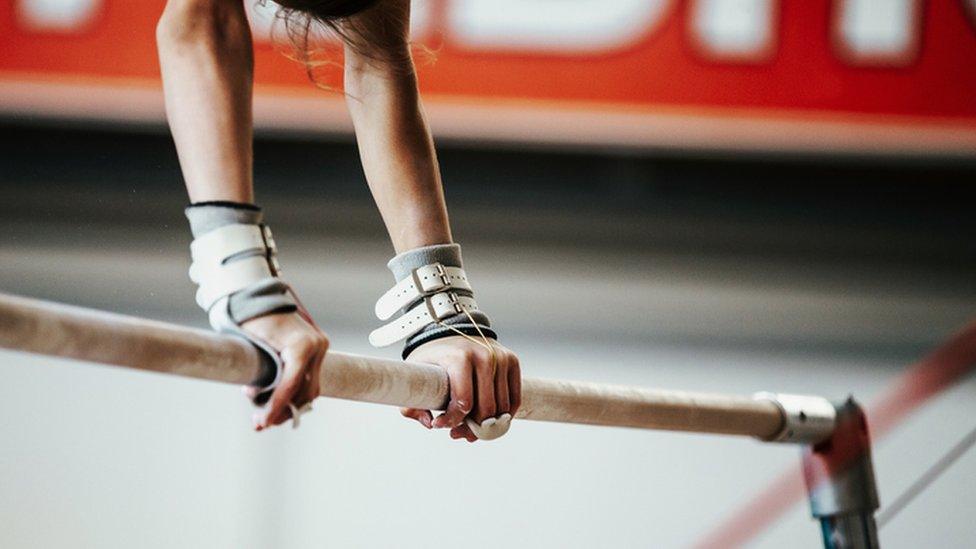
What are British Gymnastics' new rules?
The new rules aim to stamp out mistreatment of athletes such as forcing gymnasts to train on injuries, being punished for needing the toilet, being sat on by coaches and being shouted and sworn at.
The new policies also include rules to avoid children missing school to train, dehydration and bullying by staff about body weight and eating.
Gymnasts should be allowed opportunities to drink water throughout training, and should be allowed to go to the toilet "at the earliest available opportunity".
No child under 12 can be taken out of school to train, and those over 12 can only miss school in "exceptional circumstances".
No gymnasts aged 10 or under can be weighed. Children between 11-18 can only be weighed with both their consent that of a parent/guardian. Sports science or medical practitioners should do the weighing - not coaches - and only if there is "scientifically valid rationale" for it.
These rules are the first of many British Gymnastics say they hope to introduce over the next year - they've said more policies are currently being developed around injuries, training load and flexibility.
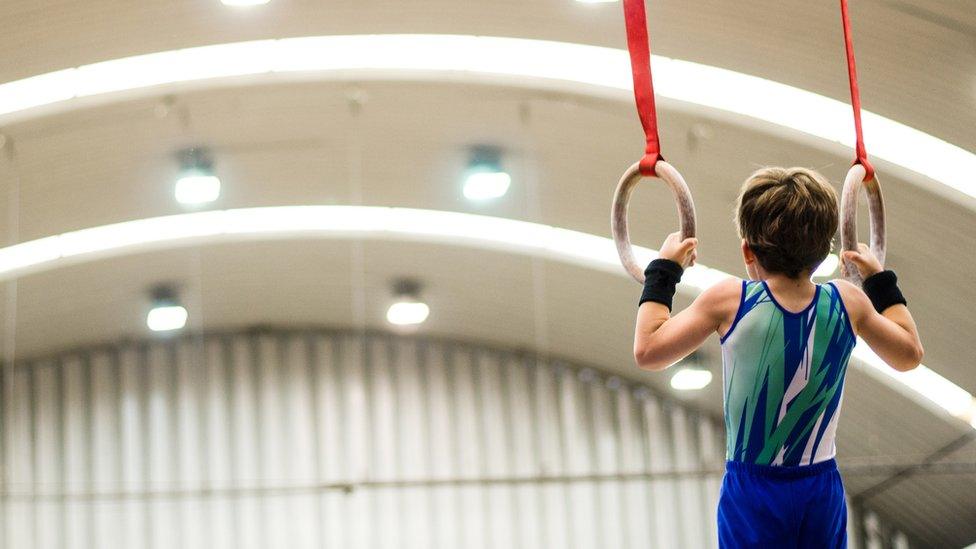
Why are the new rules by British Gymnastics needed?
Over 400 gymnasts contributed to the Whyte Report, sharing their accounts of things that happened to them during training between 2008 and 2020.
More than 40% of those who contributors described physically abusive behaviour towards gymnasts by coaches.
They gave many examples of cruel treatment by training staff of young athletes who weren't able to perform certain gymnastic moves or tasks.
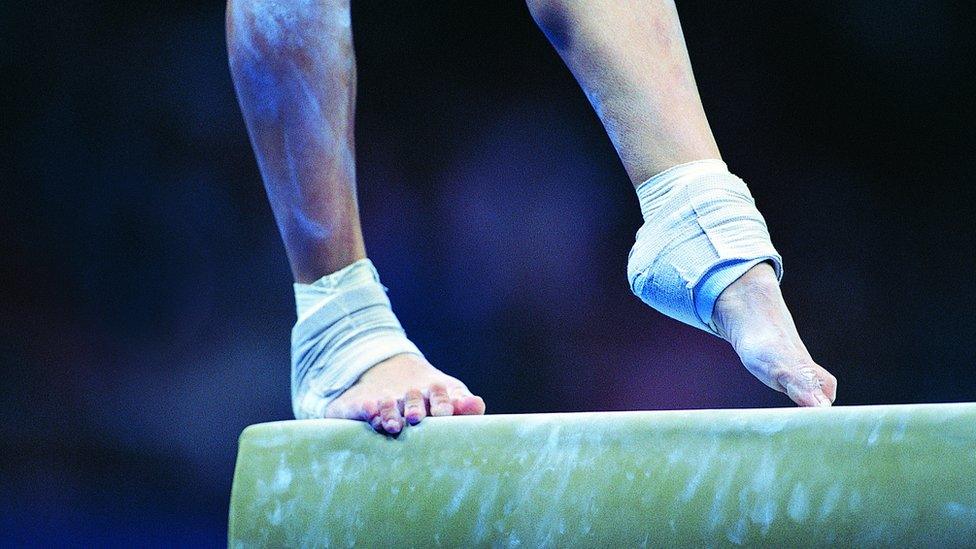
There were also reports of gymnasts being put under a huge amount of pressure over what they ate - to maintain a certain weight - and not being allowed to go the loo.
The way many gymnasts were treated in clubs was described as "on the fringes of abuse" by British Gymnastics.
The organisation say the new rules are designed to stop this.
"This is about making sure that within gymnastics, we actually don't see them as gymnasts, we see them as young people, we see them as children", British Gymnastics chief executive Sarah Powell said.
What are people saying about the announcement?
British Gymnastics said: "Above all else, we care about gymnasts as people, and these new policies make clear that what matters most in gymnastics is the welfare of those involved.
"While practices have moved on a long way, we know there has been poor practice in these areas and so by providing clarity for gymnasts, parents and carers, coaches, clubs, volunteers and officials through the statements set out in these policies it will ensure everyone understands what is OK and what is not OK and help prevent that happening in the future."
They also said clubs would offered support to implement these mandatory changes.
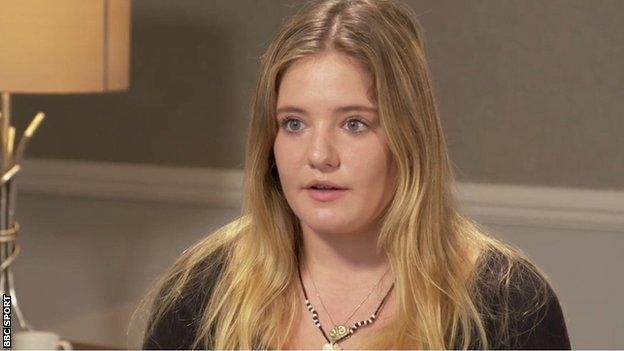
Eloise Jotischky says she quit acrobatic gymnastics as a result of her experiences in the sport
Former gymnast Eloise Jotischky in 2022 became the first and only gymnast to win a civil case for the way she was treated by her coach, Andrew Griffiths.
She took her coach to court because of the abuse and harassment she suffered - and she won.
"I think it's a big step," Jotischky said of the new policies. "It's massive to have something in concrete."
But Eloise doesn't think some of the rules go far enough. Speaking about protecting education for under 12s she said: "I think that the policy should be extended to under 16s. Those years are crucial, children are taking GCSEs at that point."
You can contact Childline - a counselling charity for people aged 18 and under - on 0800 1111 for free at any time.
In June, campaign group Gymnasts for Change criticised British Gymnastics for not implementing enough changes a year on from the initial Whyte Review findings.
British Gymnastics says it is working through a case load of around 350 'concerns' from gymnasts, many of which date back years. The governing body says it is continuing to strengthen the complaints process and to improve communication and support for those involved.
